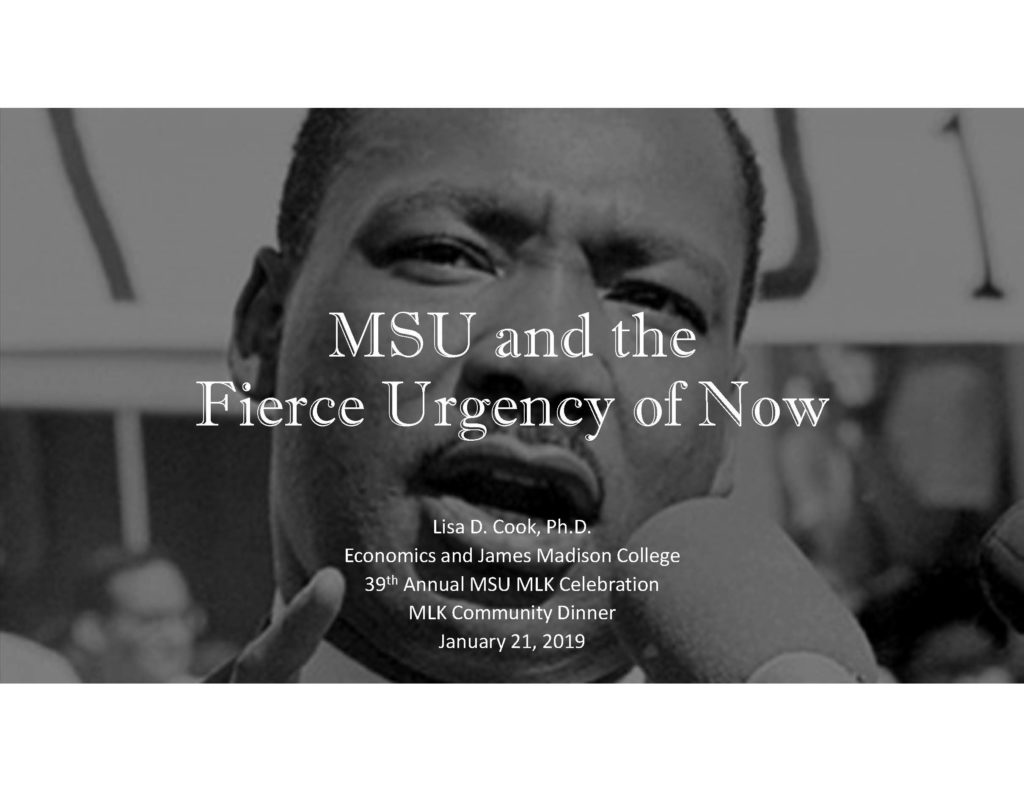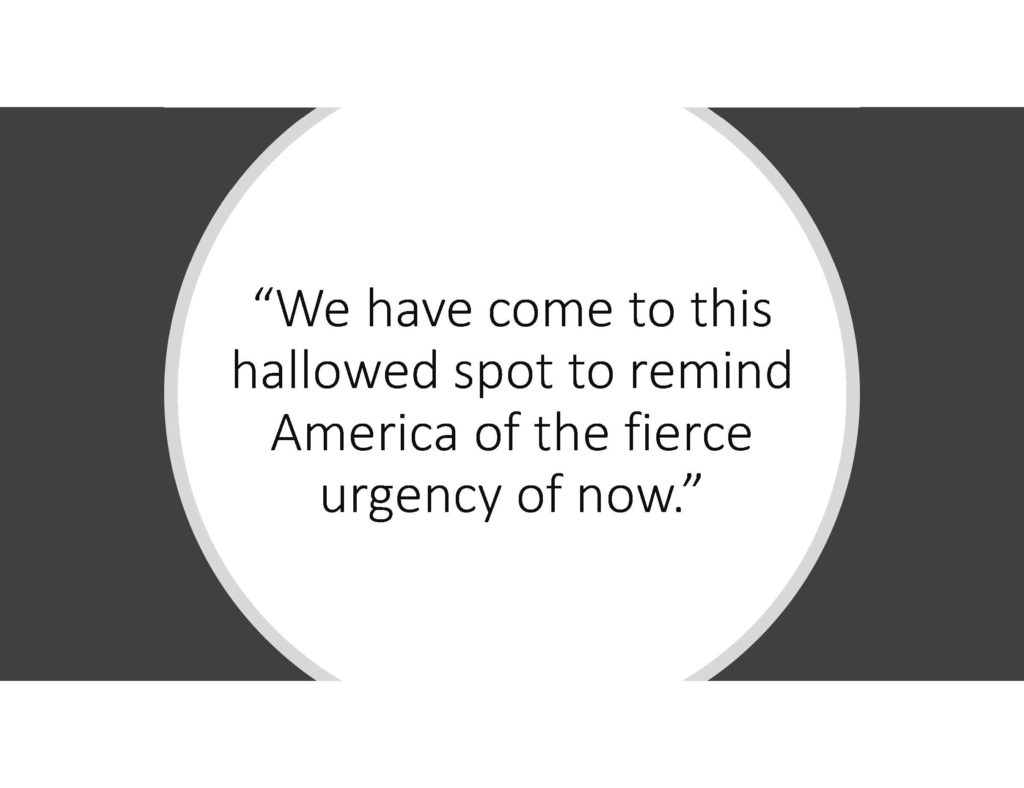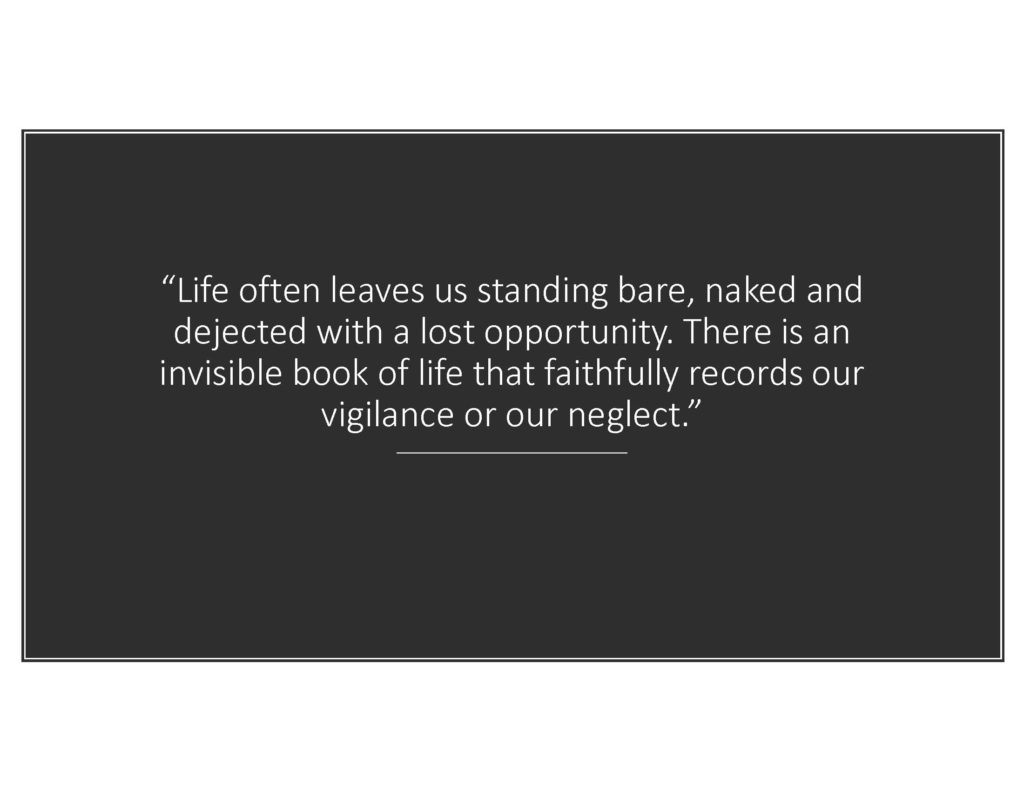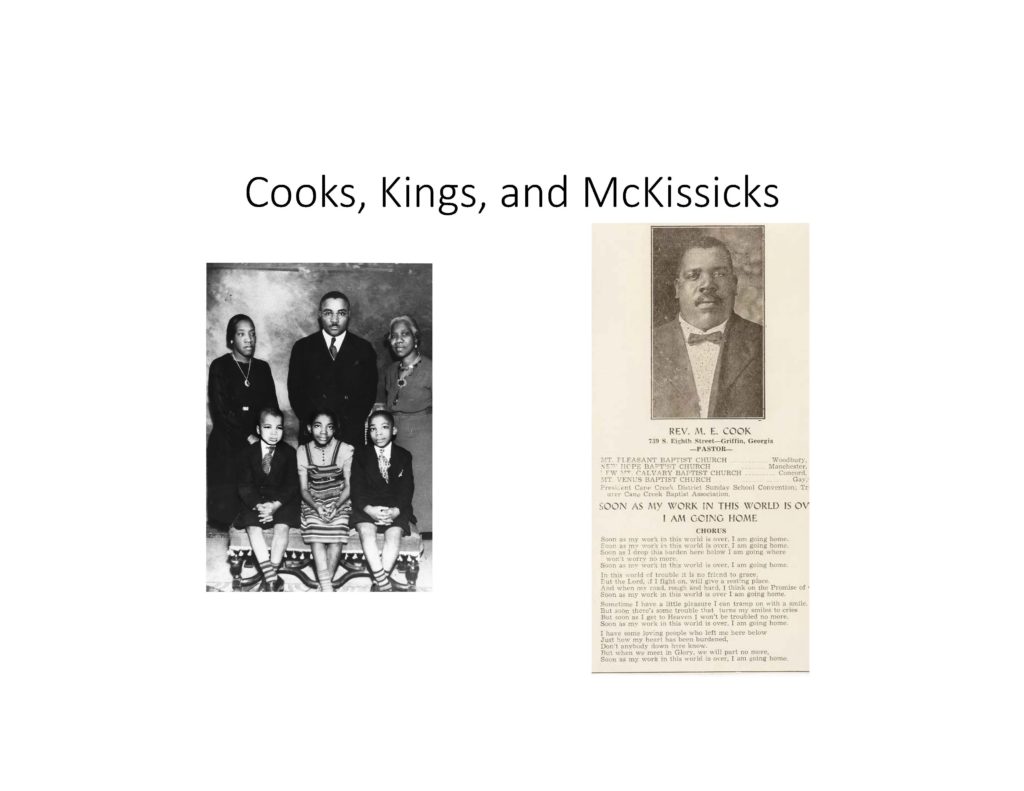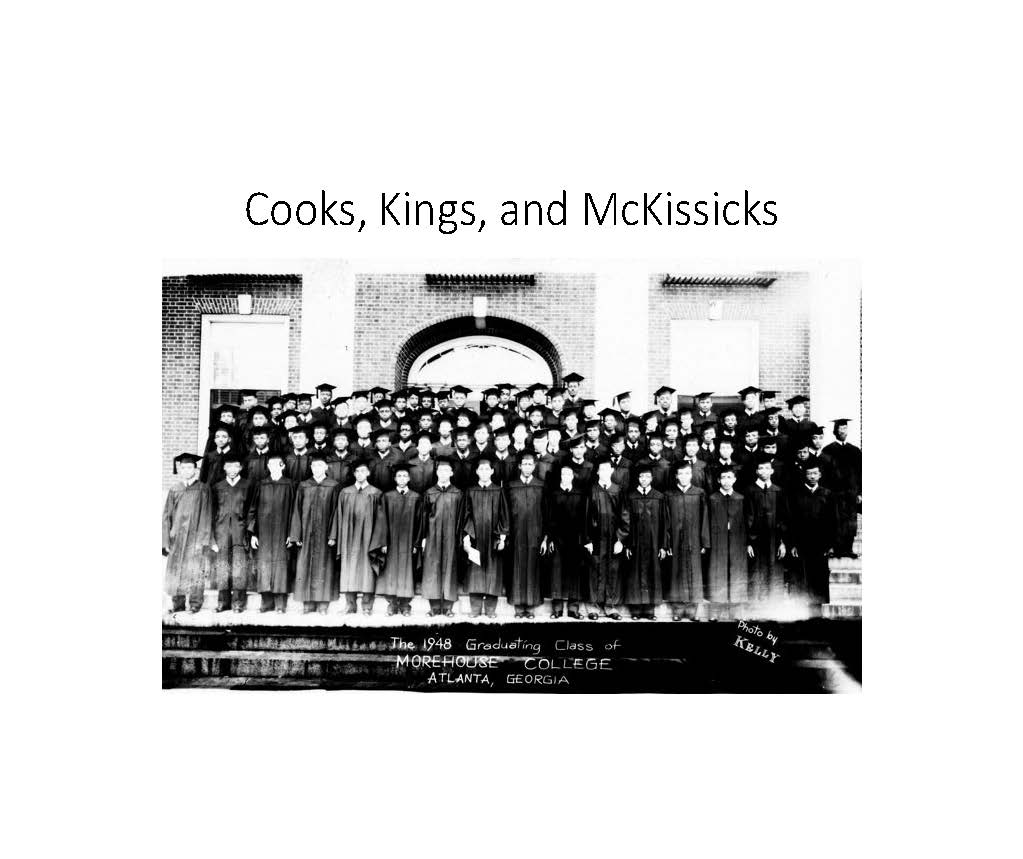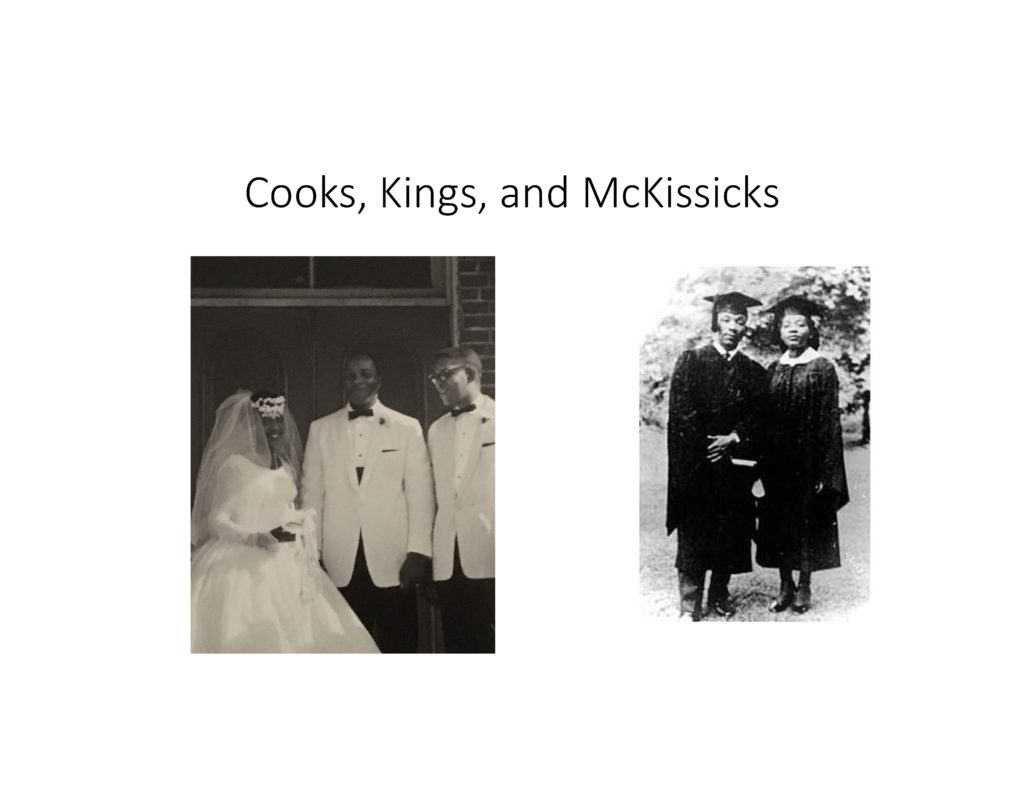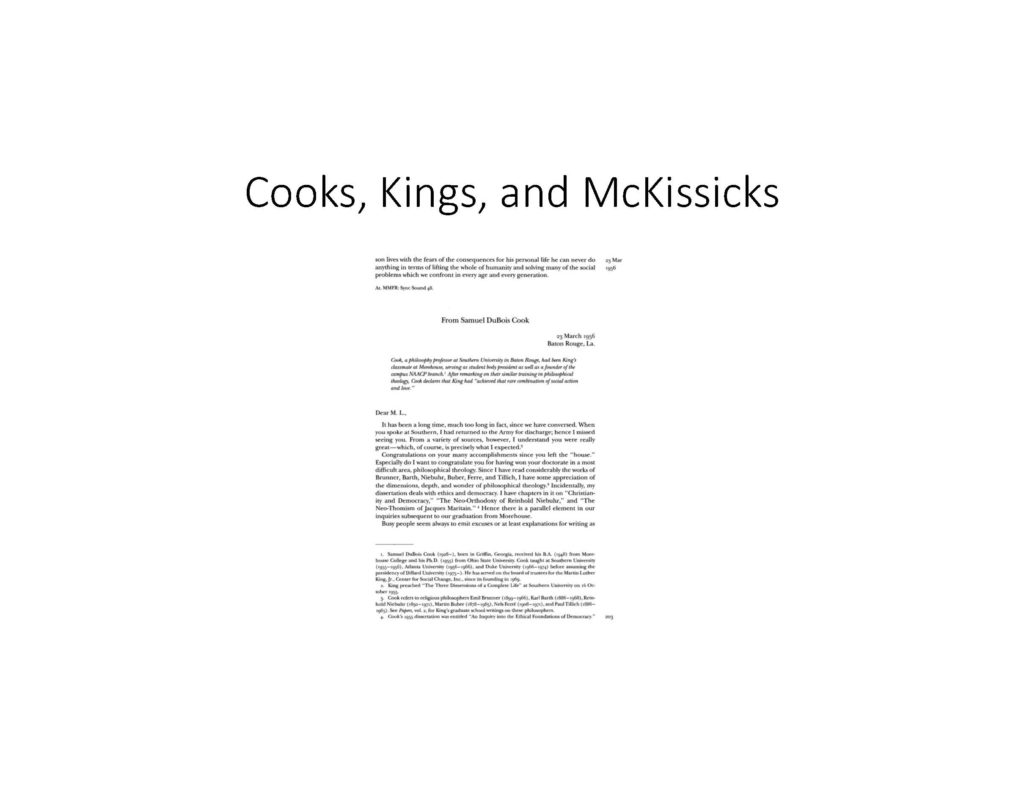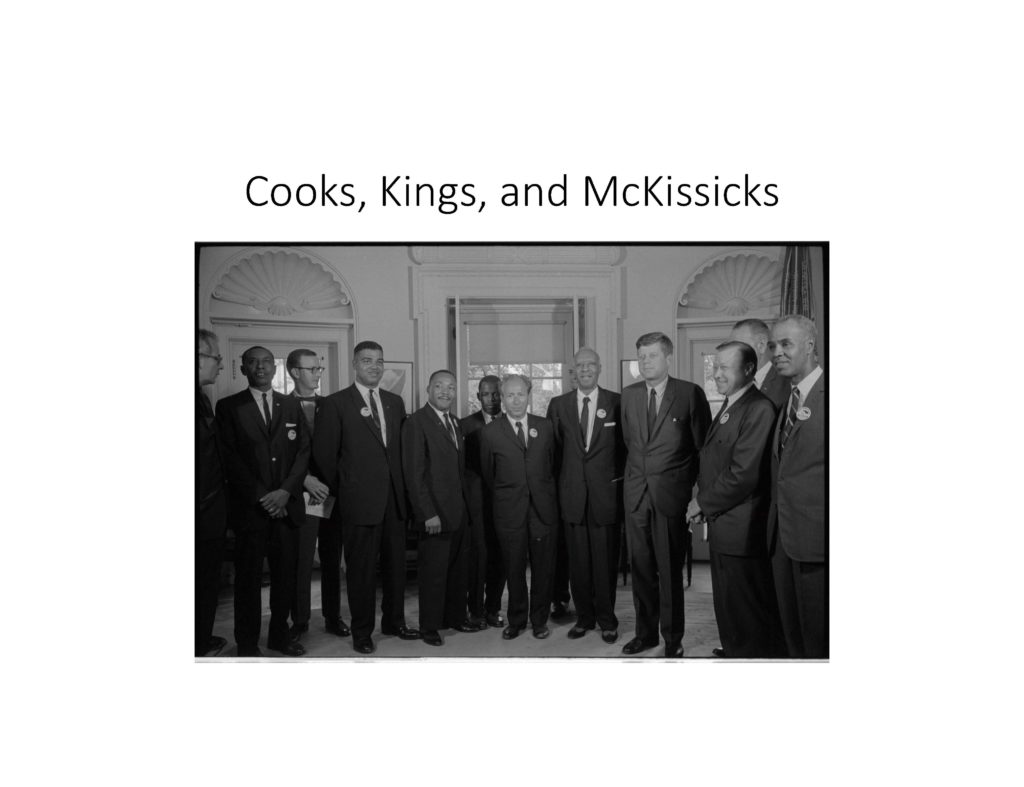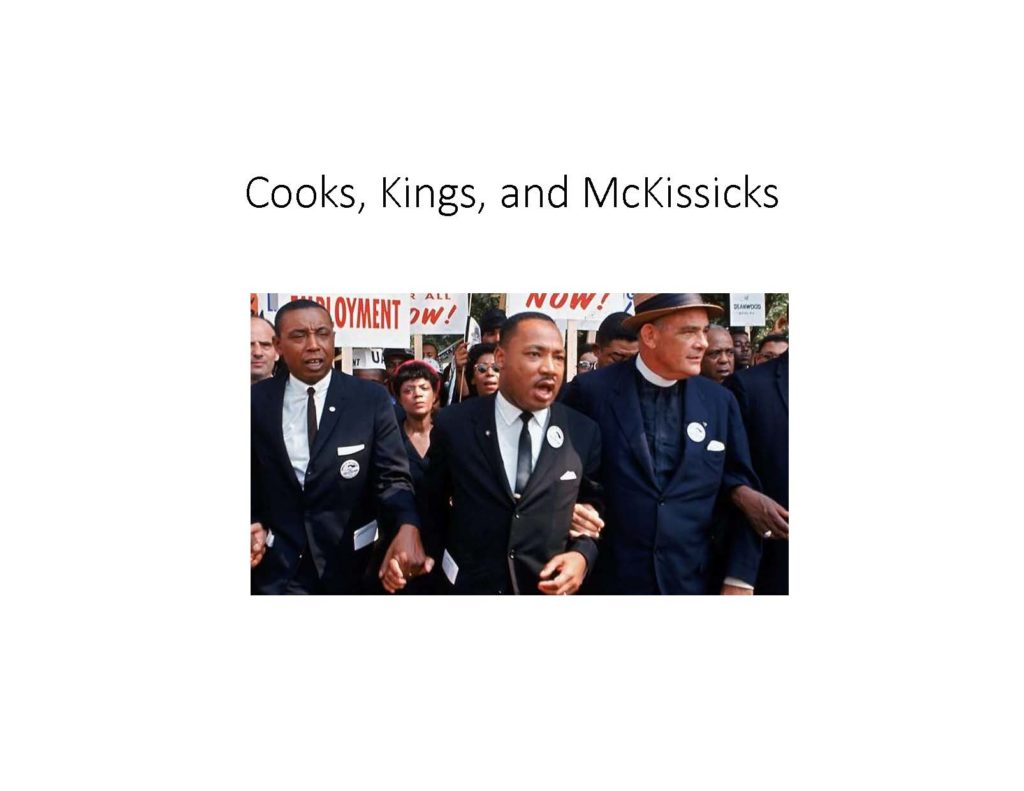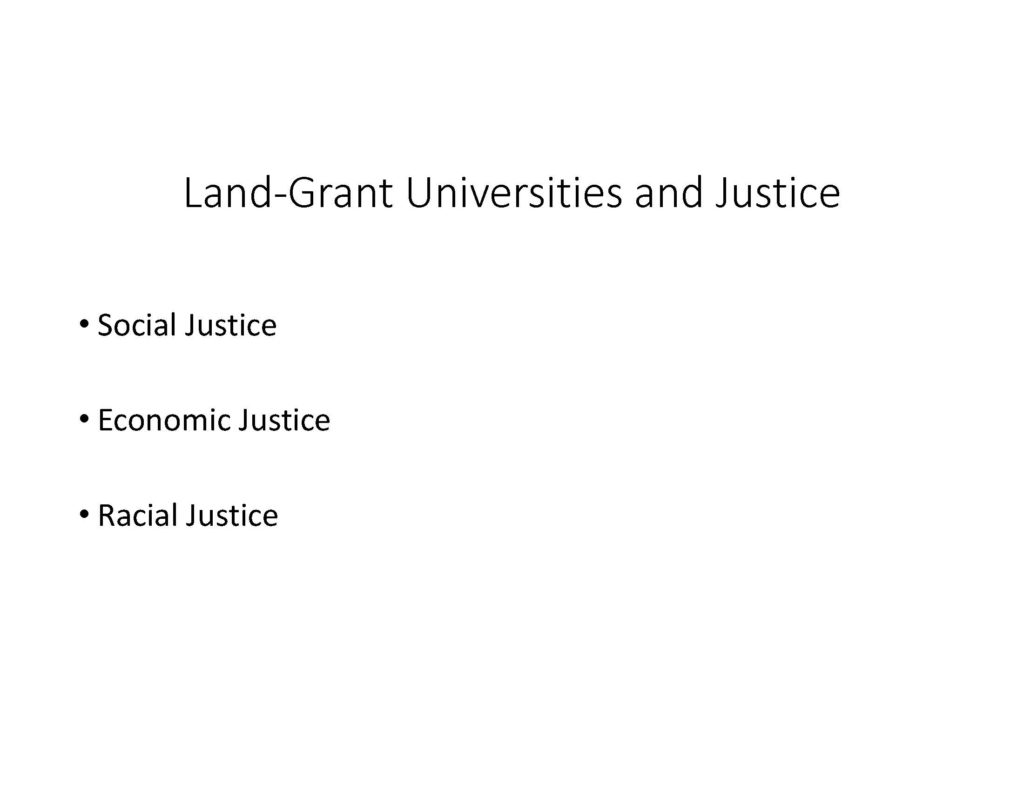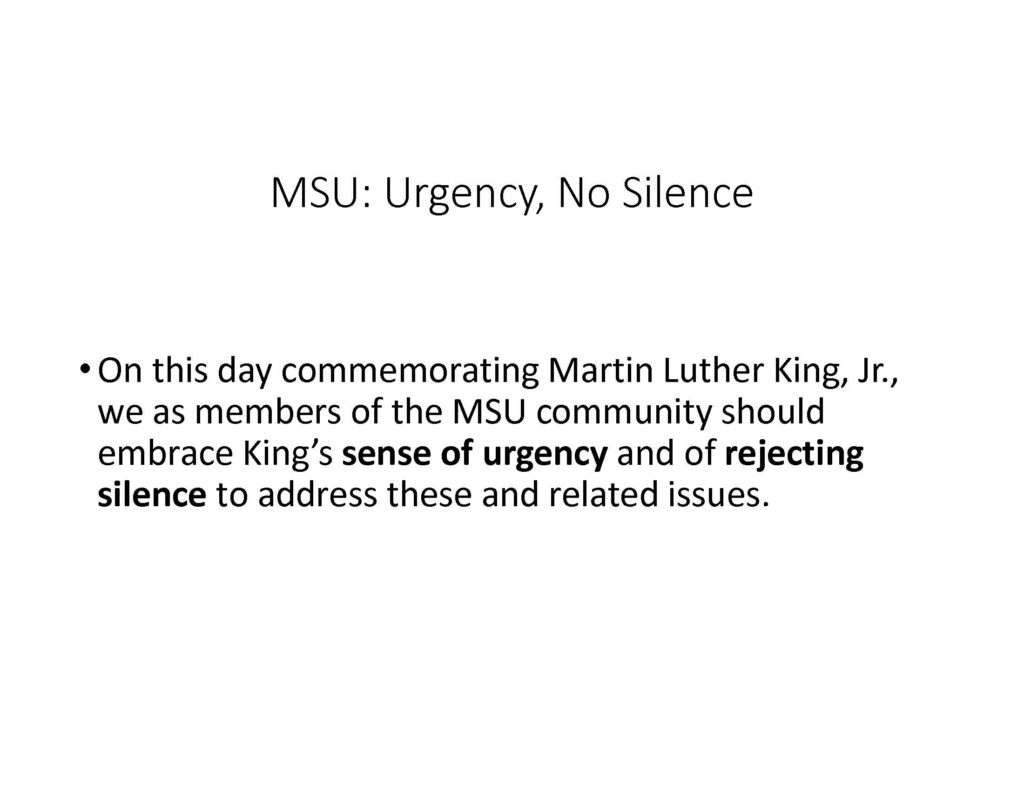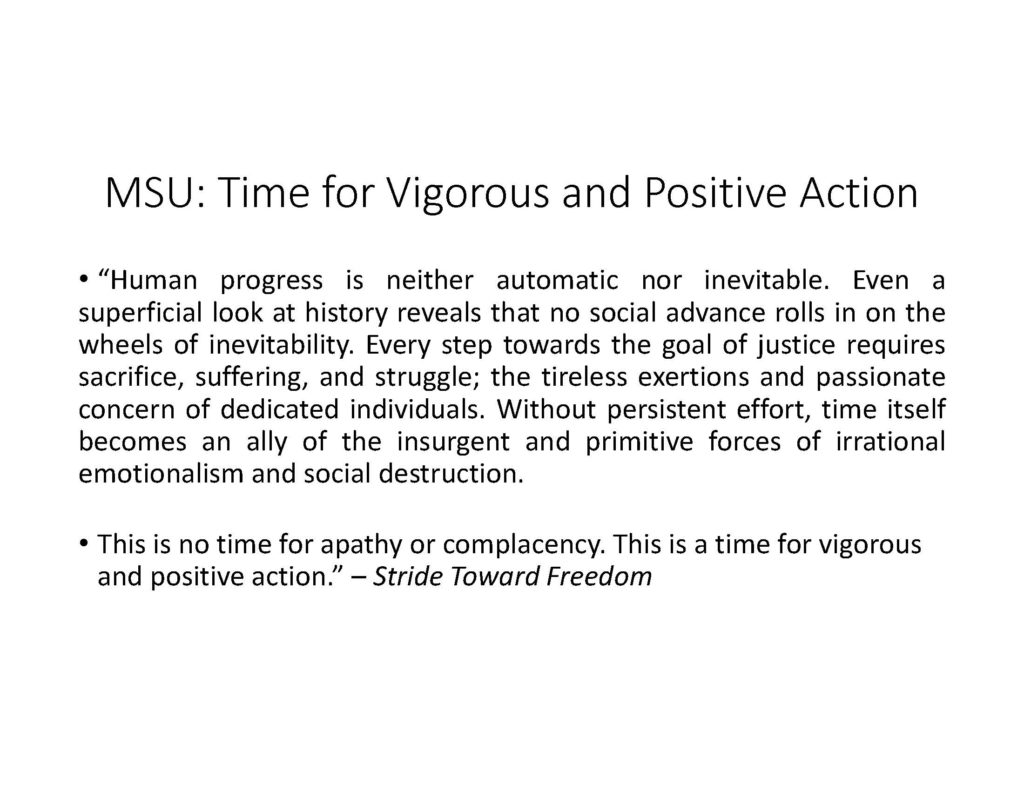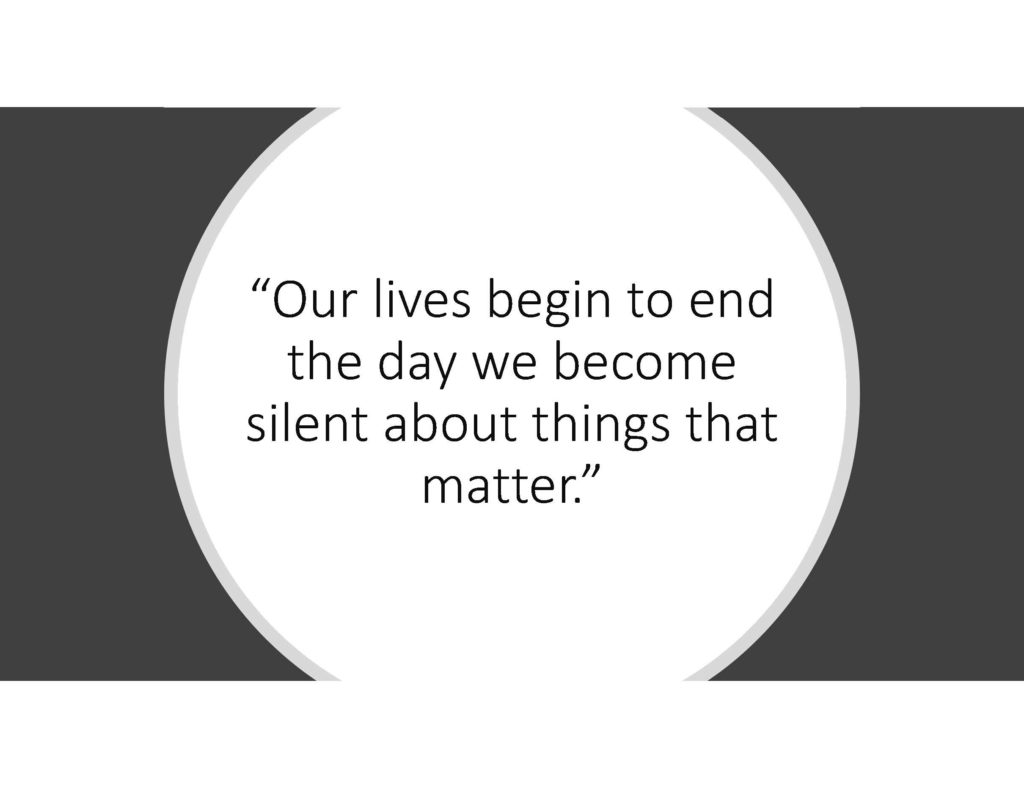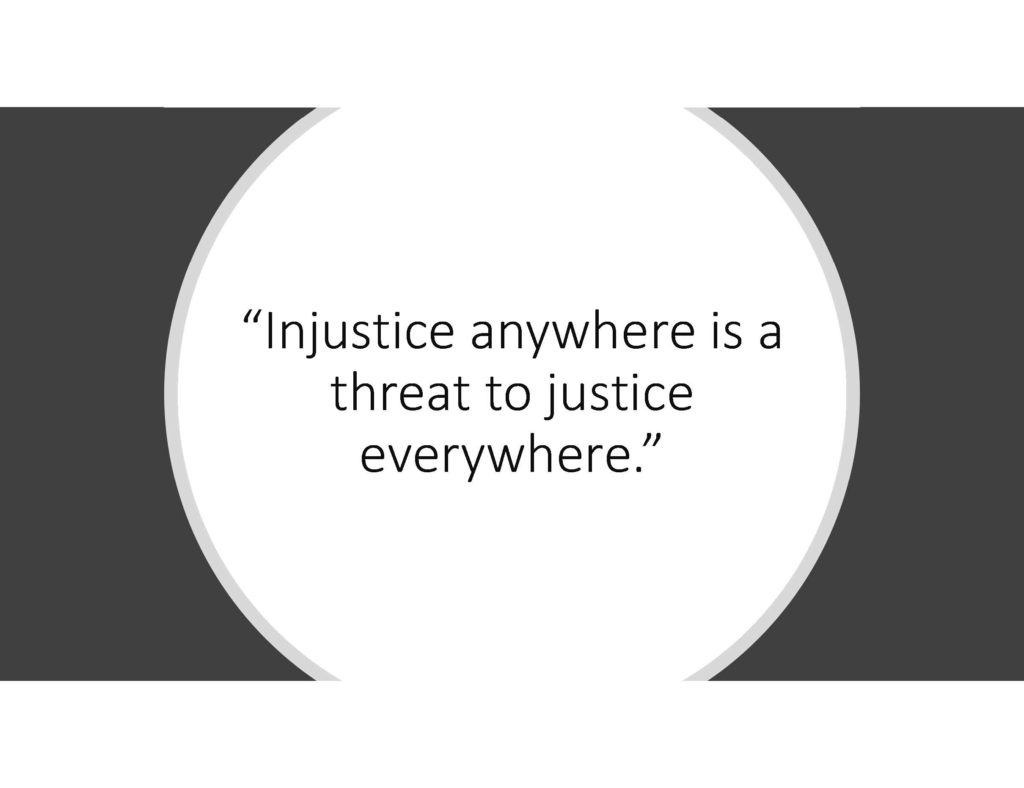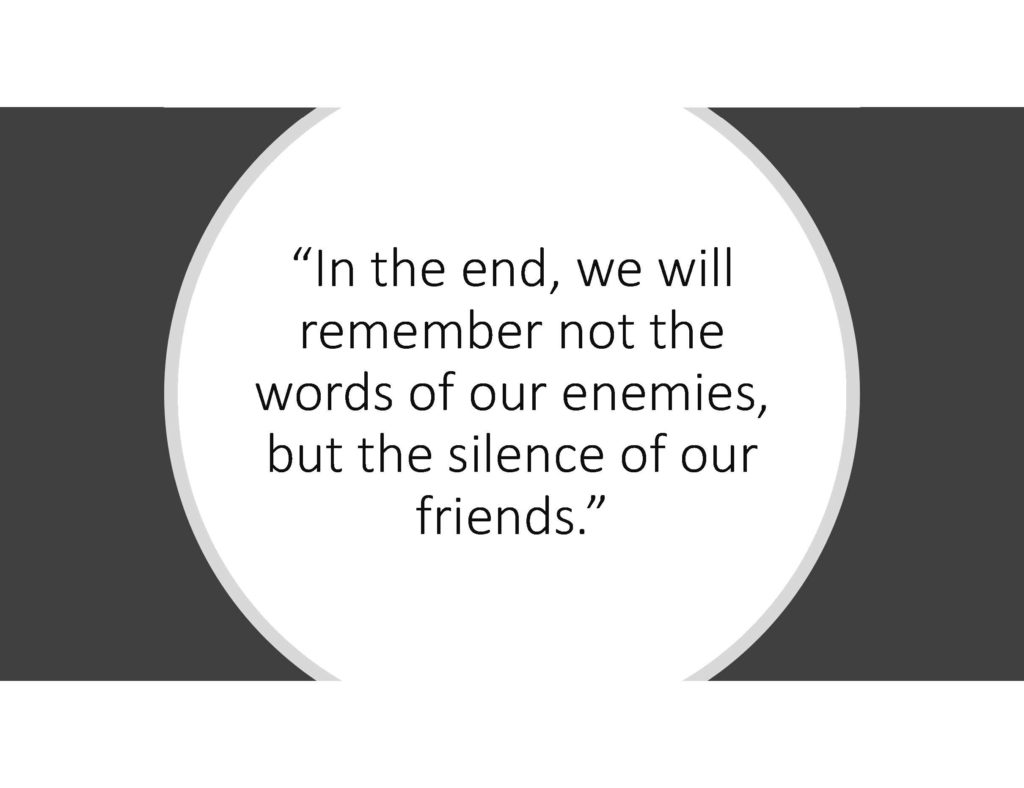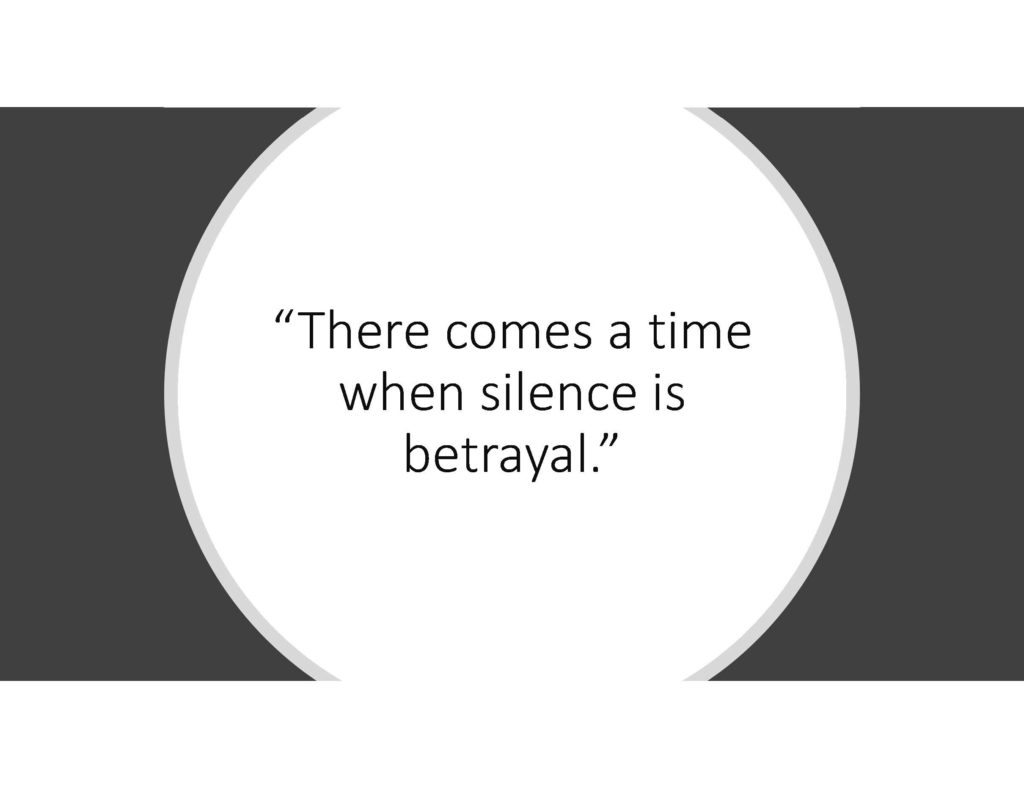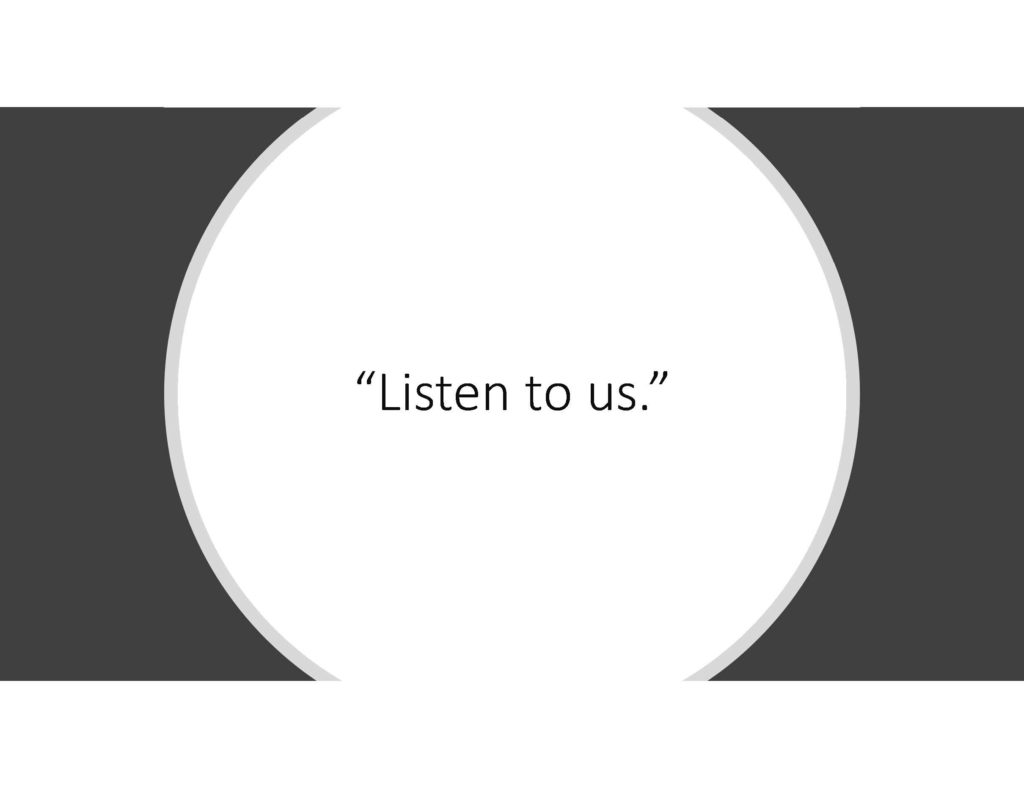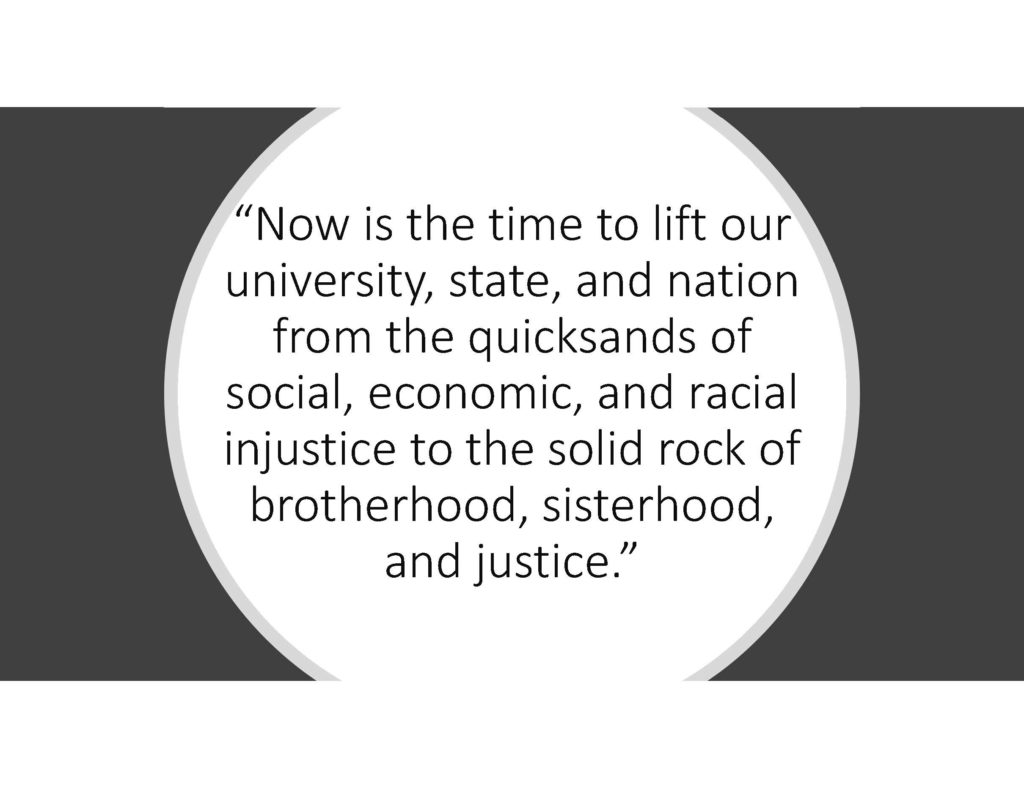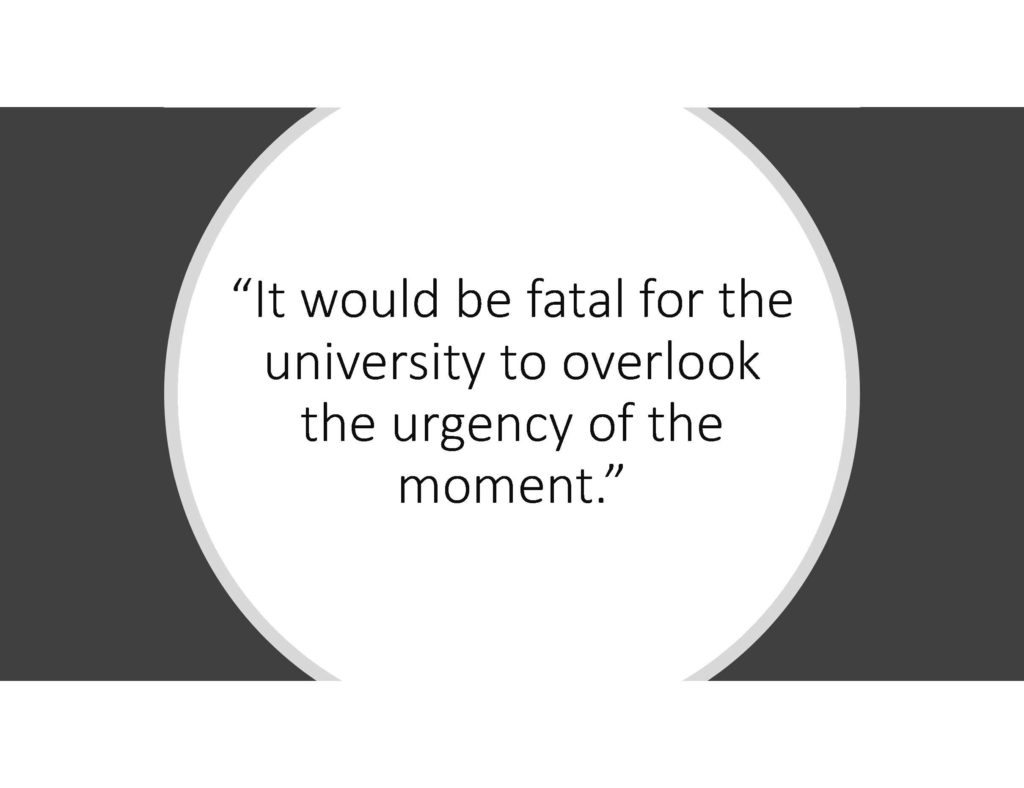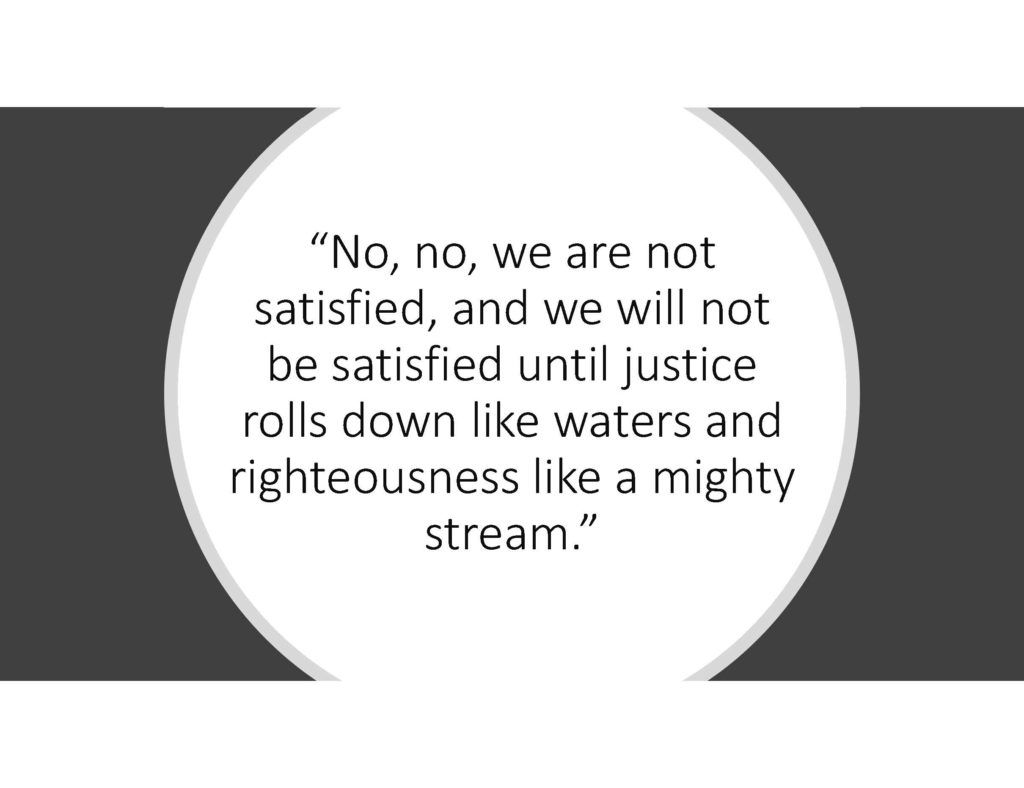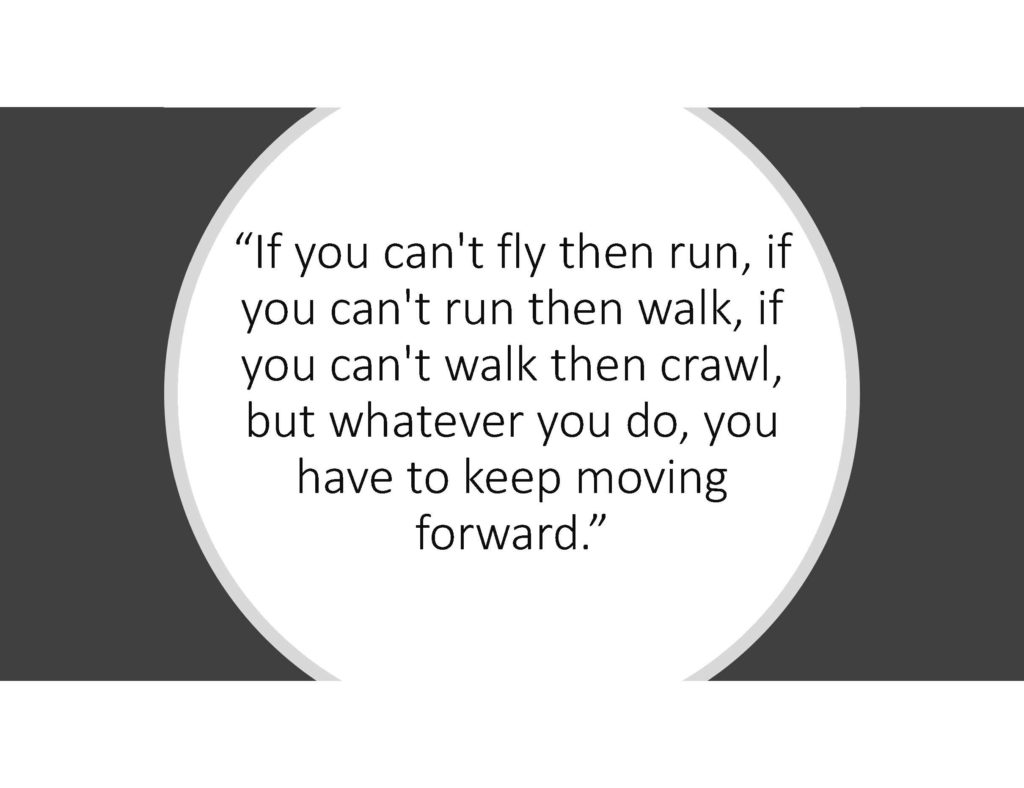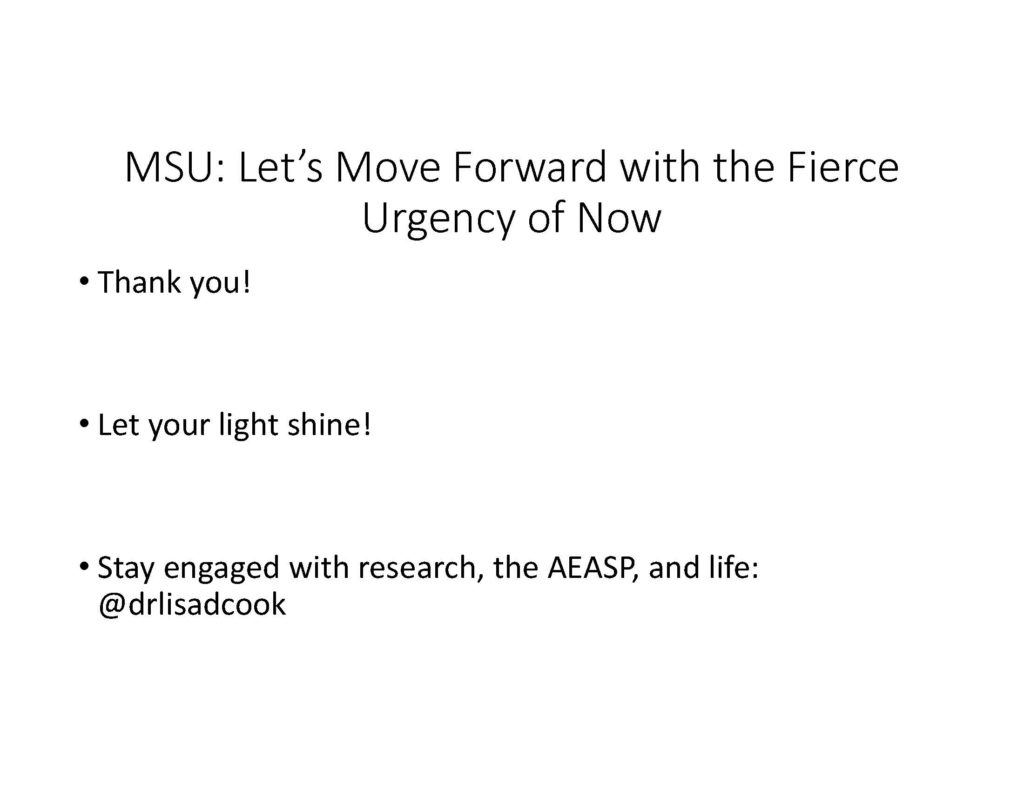MSU MLK Community Dinner Speech by Lisa D. Cook January 21, 2019
Thank you, Paulette Granberry Russell, for the honor of allowing me to give the MLK Community Dinner keynote address today. And thanks to friends, colleagues, students, mentees, and my pastor, Rev. Mashod Evans, who have come here this evening.
“We have come to this hallowed spot to remind America of the fierce urgency of now.”1
“We are now faced with the fact that tomorrow is today. In this unfolding conundrum of life and history there is such a thing as being too late. Procrastination is still the thief of time.
Life often leaves us standing bare, naked and dejected with a lost opportunity. There is an invisible book of life that faithfully records our vigilance or our neglect.”2
These words are taken from Dr. Martin Luther King’s I Have a Dream speech at the March on Washington in 1963 and Beyond Vietnam: A Time to Break Silence speech in 1967.
We are gathered here to observe and honor that drum major for justice, Rev. Dr. Martin Luther King, Jr., and to rededicate ourselves to his, our country’s, and our university’s ideals of justice.
Before I go further, I would like you to know that I am not just blindly and distantly referring to the Nobel Peace Prize winner and civil rights leader. If he were alive today, I would call him “Uncle ML” Let me take a minute to tell you about how close our families and our thinking about justice and equality are.
My grandfather Rev. Marcus Emanuel Cook and Daddy King were both ministers in GA and were friends. They started Morehouse College together. Granddaddy, Daddy King, my dad, my Uncle Sam, and MLK met when my dad was 8 years old and the other boys were 10 years old. My Uncle Sam and Uncle ML also picked tobacco together before entering Morehouse in the Class of 1948.
My Aunt Christine and Christine King started Spelman College that same year, too, and sang in the Glee Club. Bernice King, King’s younger daughter and my sister Pamela were classmates at Spelman and Vice President and President of the student body the same year. Angela Farris, King’s niece, and I were classmates and friends at Spelman.
Uncle Sam and Uncle ML remained friends until King’s death. As the 1956 letter to Uncle ML from the King Papers Project at Stanford shows, they discussed the philosophical foundations of the Civil Rights Movement.
My cousin on my mother’s side Floyd McKissick was also in the Class of 1948 at Morehouse College. Floyd became an activist and lawyer in his native North Carolina, co-founded the Congress on Racial Equality with James Farmer, helped to organize the Freedom Rides, spoke at the March on Washington, started a city, Soul City, NC, and integrated the University of North Carolina as its first law student in 1951. Currently, there are three exhibits about him among the inaugural exhibits at the National Museum of African American History and Culture in Washington, DC.
I am not mentioning my family history to boast. But I did want to let you know that I am an unconventional scholar of conviction for a reason. I am grateful to have had lots of examples of scholarship, sacrifice, and service when I was growing up, and Uncle ML was one of them.
As students, faculty and staff of the nation’s oldest land-grant institution, Michigan State University, we are no strangers to this mission of pursuing justice. The purpose of the Morrill Act and the mission of the first land grant institution was to develop and transform areas and lives.
Implicit in that mission and in the history of land grant institutions are the goals of
Social justice Economic justice and Racial justice.
Social justice: UC-Davis has one of the most diverse student populations in the country and is well known for providing social mobility to first-generation and diverse populations of students. Freshman at North Carolina A&T played a pivotal role in the sit-ins in Greensboro, NC, in 1960 that were critical to desegregation efforts of the Civil Rights Movement.
Economic justice: At MSU, UC-Davis, Cornell, and Tuskegee, agricultural innovation and development raised the standards of living of millions of residents of all states in the union.
Tuskegee University brought electrification to rural SE Alabama, not just its adjacent black neighborhoods, and GW Carver’s inventions were disseminated across the South and the country.
And MIT, NC State, and Wisconsin, and of course, MSU, are incubators for some of the most creative and nimble startups and employment generators in the country.
Racial justice: Many of the HBCUs providing education in engineering and many fields are land-grant institutions, and nearly all tribal colleges are land grant institutions. In addition, MSU was the first major American university to have an African American president, Clifton Wharton.
We in this room are well aware of recent events, including with Larry Nassar. As a result, many feel that, by embracing a culture that did not protect athletes, students, and faculty from sexual abuse, harassment, and misconduct, we have fallen short of the justice mission of land grant universities.
Can we talk candidly as the MSU family for a moment?
On this day commemorating Martin Luther King, Jr., we as members of the MSU community should embrace King’s sense of urgency and of rejecting silence to address these and related issues.
Uncle ML said in Stride Toward Freedom: The Montgomery Story Chapter XI: Where Do We Go From Here?
“Human progress is neither automatic nor inevitable. Even a superficial look at history reveals that no social advance rolls in on the wheels of inevitability. Every step towards the goal of justice requires sacrifice, suffering, and struggle; the tireless exertions and passionate concern of dedicated individuals.
Without persistent effort, time itself becomes an ally of the insurgent and primitive forces of irrational emotionalism and social destruction.
This is no time for apathy or complacency. This is a time for vigorous and positive action.”
Today, I contend that all the groups in this room can take vigorous, positive action to restore and revive MSU.
Administrators, thank you for the reforms you have already put in place and have committed to. But you can ask more questions and reallocate resources. Are chairs and units meeting the university’s goals of equity? Deans, how are you “cultivating institutional habits of truth telling and truth hearing, critical self-reflection, and accountability and … intentionally empowering those habits on our campuses to meet that calling,” as you outline in your July letter published in Inside Higher Ed? Have you put forward and executed plans to achieve these goals and are you holding those who report to you accountable?
Are you informing yourself about the new codes of conduct of the American Economic Association and other professional associations? A number of them are considering or have implemented codes of conduct that would allow sanctions against universities rather than individuals, and these could have sweeping consequences. How are you equitably cultivating and retaining talent? Now is not the time for silence and inaction. As Uncle ML would say, “Our lives begin to end the day we become silent about things that matter.”3
Chairs, how are you making a difference? Are you replicating your faculty exactly or are you welcoming diverse faculty in your departments and units? When my friend and mentor Janet Yellen, the former chair of the Federal Reserve Board of Governors, arguably the most powerful person in the world at the time, addressed the students of the AEA Summer Program in 2016, she reported that the lack of diversity was at the root of the financial crisis and Great Recession.
Economists studying the economy at the Fed had largely attended the same universities, been trained by the same professors, posed the same questions, were primarily the same gender and race, and experienced the economy in much the same way. She argues that a more diverse pool of people would have analyzed the economy differently, detected signals that would have been missed by others and earlier, and so on. She had some standing to speak, because notes of the Federal Reserve from the period of the crisis reveal that she was the most accurate Fed official on the economy at the time the crisis was happening.
My coauthor and I have a paper that finds that GDP or the size of the economy would be 4.4% higher if the share of women and underrepresented minorities participating in STEM fields increased. We are not being good stewards of our resources and the economy if we are not helping to change the status quo.
These are just two examples. You and I know that the empirical literature related to diversity, whether in students, faculty, or staff, is growing, and the evidence leans towards more of it to solve the greatest challenges society faces. And what are you doing to close the gender and racial gap in compensation and service duties? Uncle ML would say that injustice anywhere is a threat to justice everywhere.
Colleagues, thank you for supporting survivors, students, staff, and fellow colleagues in seen and unseen ways during this crisis. At this juncture, we should remain encouraged and ask what more we can do.
Are you doing your part with one of the most prized occupations one could have in society today? Are you being allies and speaking up when you see racist, sexist, homophobic, or other hateful acts?
Is the climate for research, teaching, and service conducive for faculty to thrive? Are you citing, mentoring, and being an ally to women and underrepresented minorities? Are you only nominating colleagues who look like you for college, university, and professional awards?
In your mentoring and advising are you approaching junior faculty and students from the perspective of deficits or of possibilities? Are you including women and URM on your syllabi and in the articles, books, edited volumes, and textbooks you are writing or editing? When organizing conference sessions and panels, are you including women and underrepresented minorities? When considering potential junior and senior hires, are you inviting women and URM to apply, interview, and come to campus? And are you selecting them to be your colleagues? Our fields will become irrelevant and marginalized without the innovation and expertise diversity brings.
It was our colleague and James Madison Professor Andaluna Borcila who said after last Thursday’s board meeting, “I think that everybody who’s been speaking up has made a difference.”4 She and Anna Pegler-Gordon, among others, have certainly been lifting their voices on behalf of survivors, students, faculty, and staff from the beginning of the Nassar crisis. And I think I speak for many faculty in expressing my gratitude for them.
Finally, colleagues, you can betray the university’s land grant mission of social, economic, and racial justice by acts of omission just as you can with acts of commission. “In the end, we will remember not the words of our enemies, but the silence of our friends,” Uncle ML would tell you.
Students, I really want to talk to you today. Where are the students tonight? You know, MLK was considered by many as unremarkable at Morehouse College, and he was often considered a reluctant leader. I want to tell you that you do not have to be the noisiest wheel to be effective!
Thank you for your engagement and activism recently. Sometimes we old folk get ossified in our ways and cannot see injustices that are right in front of us. From gun violence to gender equity and sexual assault, you have taken on leadership roles and inspired us. Many of the leaders of the Civil Rights Movement wee young people like YOU, including John Lewis, Marian Wright Edelman, and Uncle ML, the youngest person ever to receive the Nobel Peace Prize.
What else can you do? How are you using your talents and voice? Are you becoming proficient in your studies to be able to credibly take positive action? Are you engaging with people and experiences that are out of your comfort zone, like study abroad or machine learning? Are you saying something when you or your friends observe or are a victim of a hateful act? Are you being an ally to your classmates when they are bullied, when uncomfortable subjects are being discussed, or when they get into situations that are ripe for sexual harassment, assault, or abuse? Are you participating in elections and making your voice heard in the presidential search process? Uncle ML would say that there comes a time when silence is betrayal.
And new interim president, I am grateful and excited that you my friend, Satish Udpa, have been selected for this role. I have had the great pleasure of serving with you on a university committee, and Lalita and I have done committee service together, as well. Clearly, the superlative leadership qualities you displayed then have held you in good stead in your previous role as Executive Vice President for Administration and will hold you in good stead in your new role as the new leader of MSU.
This is an historic opportunity to right the ship and change course after an historic and unintended detour. What will it take to keep us on course to fulfill the missions of social, economic, and racial justice as a land grant university?
If I look at the words of the deans in their July letter; Andaluna Borcila and others in Reclaim MSU; authors of the AEA Letter that appeared in the NYT and was the subject of many sessions and conversations calling for an end to a climate of sexual and racial harassment and discrimination in economics; Tarana Burke, Alyssa Milano, and others in the #MeToo movement; R. Kelly’s survivors; Anita Hill and Christine Blasey Ford, a common leading request is “Listen to Us.”
If people do not feel as though they are being heard on these and other issues, cultural change is not credible and will not happen. If those writing and speaking these words are not living up to their pronouncements, this will amount to one more empty promise.
My Uncle Sam, who was the first black professor at a major Southern university, Duke University, (this was tougher to do than to become the first black faculty member at Harvard!) and was subsequently president of Dillard University, mentored a number of university presidents. If he were still living, he would advise you to proceed with integrity. Integrity to lead with purpose, conviction, and openness. (He would also want you to have a balanced budget every year, which he did each year during his 22-year tenure at Dillard!)
If I were to summon the lessons of Uncle Sam, Cousin Floyd, Uncle M.L., Dorothy Height, Marian Wright Edelman, John Lewis, and others in the Civil Rights Movement I met, another guiding principle would be hope. After the lynchings they witnessed and the beatings and other injustices they suffered, they were still filled with hope and optimism that America would live up to its values. In the last few days, I have felt a sense of hope emerging on campus as if from Pandora’s box. It is a hope that MSU will return to its core values and to its land-grant mission.
I think Uncle ML’s specific advice would be:
“This is no time to engage in the luxury of cooling off or to take the tranquilizing drug of gradualism. Now is the time to make real the promise of change. Now is the time to rise from the dark and desolate valley of silence and insularity to the sunlit path of openness and transparency.
Now is the time to lift our university, state, and nation from the quicksands of social, economic, and racial injustice to the solid rock of brotherhood, sisterhood, and justice.
… It would be fatal for the university to overlook the urgency of the moment.”5
Indeed, this is a critical inflection point in MSU’s history.
Everyone is compelled to do and can do something to renew and revive MSU with the fierce urgency of now. “No, no, we are not satisfied, and we will not be satisfied until justice rolls down like waters and righteousness like a mighty stream.”6
As Uncle M.L. would have said to each of us, “If you can’t fly then run, if you can’t run then walk, if you can’t walk then crawl, but whatever you do, you have to keep moving forward.”
Thank you for your indulgence today. And keep moving forward with the fierce urgency of now!
Will you stand and sing with me that great song of the Civil Rights Movement that keeps us moving forward, “This Little Light of Mine”! Taja, will you join me?
1 MLK, Jr., “I Have a Dream,” March on Washington, August 28, 1963.
2 MLK, Jr., “Beyond Vietnam: A Time to Break Silence,” Riverside Church, April 4, 1967.
3 Martin Luther King Jr., I Have a Dream: Writings and Speeches That Changed the World
4 Andaluna Borcila quoted in Sylvia Jarrus, State News, 1/17/19, https://statenews.com/article/2019/01/community-members-react-to-engler-resignation-at-msu-board-meeting
5 Paraphrasing “I Have a Dream” speech.
6 MLK, Jr., “I Have a Dream” speech.

